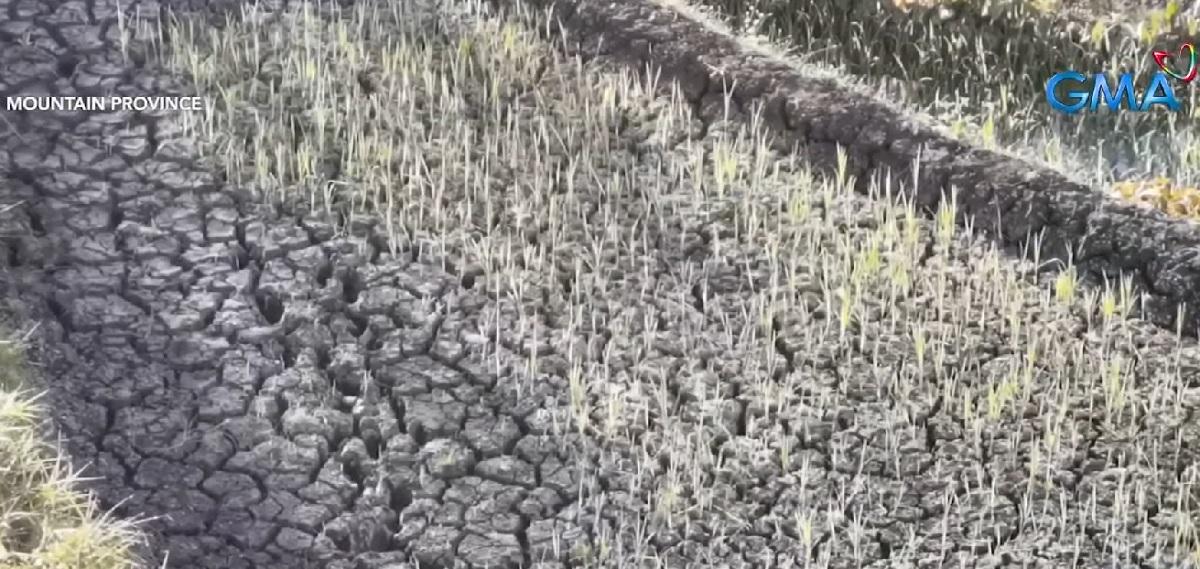More than 1.7 million persons affected by El Niño, DSWD says
At least 1.7 million individuals have already been affected by the El Niño phenomenon as of Friday, the Department of Social Welfare and Development (DSWD) said Saturday. These individuals are in Regions 2, 3, Mimaropa, 5, 6, 7, 9, 12 and Cordillera Administrative Region, DSWD spokesperson and Assistant Secretary for Legislative Affairs Irene Dumlao said […]


At least 1.7 million individuals have already been affected by the El Niño phenomenon as of Friday, the Department of Social Welfare and Development (DSWD) said Saturday.
These individuals are in Regions 2, 3, Mimaropa, 5, 6, 7, 9, 12 and Cordillera Administrative Region, DSWD spokesperson and Assistant Secretary for Legislative Affairs Irene Dumlao said in an interview on Super Radyo dzBB.
“Batay sa patuloy na pagmo-monitor ng DSWD through our field offices, babantayan natin ang movement or development ng families and affected persons,” Dumlao said.
(Based on the continuous monitoring of DSWD through our field offices, we will monitor the movement or the development of families and affected persons.)
“Medyo tumataas po ang biling ng mga apektado,” she added.
(The number of those affected is going up slightly.)
So far no individuals have been evacuated or displaced due to El Niño, she said.
Dumlao also said the DSWD has been giving family food packs and financial assistance, among others, to aid those affected by the weather phenomenon.
“Unang-una, ang DSWD ay mayroong mga ibinabahagi na family food packs. Ito ay bahagi ng humanitarian response doon nga sa mga lugar na naapektuhan ng El Niño. Lalo na ‘yung mga pamilya na nakakaranas ng kakulangan sa pagkain dahil sa tagtuyot o severe drought,” she said.
(First, the DSWD is distributing family food packs. This is part of the humanitarian response in areas affected by El Niño, especially for families experiencing lack of food due to severe drought.)
“In fact, ang DSWD ay nakapamahagi na nang mahigit P58 million worth of family food packs dito sa mga lugar na naapektuhan,” Dumlao added.
(In fact, the DSWD has already distributed more than P58 million worth of family food packs in these affected areas.)
Project Lawa, Project Binhi
Dumlao also said the DSWD has Project Lawa and Project Binhi which aim to help El Niño-affected communities have access to water.
“Aside from the humanitarian response action, mayroon din tayong proactive intervention and sustainable solutions upang labanan ‘yung kagutuman at pababain ‘yung economc vulnerabilities ng isang komunidad na naapektuhan ng climate change o ng El Niño by addressing ‘yung food insecurity and water scarcity na mas pinalalala pa ng disasters. ‘Yan nga ‘yung Project Lawa at Binhi ng DSWD,” she said.
(Aside from the humanitarian response action, we also have proactive intervention and sustainable solutions to address hunger and lessen the economic vulnerabilities of a community affected by climate change or El Niño by addressing food insecurity and water scarcity. These are Project Lawa and Binhi of the DSWD.)
“‘Yung Project Lawa, ‘yan ‘yung local adaptation to water access. ‘Yung Project Binhi ‘yung breaking insufficiency through nutritious harvest for the impoverished,” she said.
Beneficiaries of the projects are given temporary income via the cash for training and cash for work components. They are assisted in building water cisterns or small farm reservoirs, which are sized 20 x 24 square meters and 50 ft deep, that can be used as water source for their farms, Dumlao said. The Department of Agriculture provides technical expertise, she said.
“Ang priority natin dito ang mga farmers, mga fisherfolk, mga indigenous peoples, ‘yung mga persons with disability, sila ‘yung mga ina-assist natin dahil nga nakita natin na natukoy natin na sila po talaga ang mas nangangailangan. Pinaka-vulnerable,” Dumlao said.
(Our priority here are farmers, fisherfolk, indigenous peoples, persons with disability. They are the ones assisted because we saw that they are the ones most in need. Most vulnerable.)
Under the pilot program of Project Lawa and Project Binhi, small farm reservoirs were already constructed in Ifugao, Antique, and Davao.
“We will be covering more than 300 municipalities. We intend to have more than 4,500 na mga partner-beneficiaries na magbe-benefit,” Dumlao said.
Aside from the family food packs and Project Lawa and Binhi, the DSWD also has the Assistance to Individuals in Crisis Situation (AICS) Program for additional support, she said. —KG, GMA Integrated News














